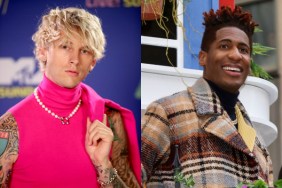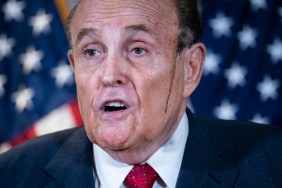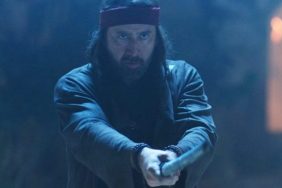Earlier this year, the Television Critics Association went to the set of “Mob City,” then still under the working title “Lost Angels,” to meet the cast.
In a press conference, series creator Frank Darabont said that he spent a long time thinking about the lead character Joe Teague, whom he invented for the dramatization of the story about LAPD versus Mickey Cohen in the ‘40s. Jon Bernthal plays Teague, so we joined a group of reporters asking Bernthal questions about “Mob City,” and his departure from “The Walking Dead.” He was dressed for production and made up like he’d been in a fight, wearing his police badge in a scuffed up suit.
CraveOnline: When Frank Darabont says this is a character he’s been thinking about forever, what pressure does that put on you?
Jon Bernthal: A lot. It puts a lot. Look, for him to reach out to me the way that he did was so unbelievably touching for me and such an unbelievable honor. I have immense respect for him as an artist and I have an immense love for him as a man. I mean, look, I put a ton of pressure on myself no matter what the job is. This one, especially, I really want to do right by Frank. I really want to make him proud and I believe in him so much as a storyteller.
Did you know before the end of “Walking Dead” that this was going to be available?
They coincided pretty closely. I was going on to do a movie called Snitch down in Shreveport. Frank had initially reached out to me. We were in pretty close communication during “The Walking Dead” ever since he left. He did say that he had something for me.
Did that help ease the pain of leaving a show like that?
Yeah, man. Look, I’ve been super blessed since I left there and really, really great movie opportunities. I knew it was always sort of set in stone when I was leaving “Walking Dead.” It was a very hard group of people to leave. I love the people on the ground that made that show. I love them with all my heart so it’s very hard to say goodbye and leave ‘em, but yeah. I was going right into a movie and then knowing I was going to be shooting the pilot for this. Right when I was shooting the pilot for this I knew I was going to do Wolf of Wall Street, the new Scorsese movie, so it definitely eased the pain and now I can just be like millions of other Americans and be a fan.
Is there anything about Darabont seeing you as a cop that surprised you?
This is so different. This is so different and look, these are both guys who operate with their own set of rules, but this is really a style piece. There’s a style to this and there’s a style to this guy and it’s something that I had to learn. It’s very different from my acting style. I like to tear a place down and this is a guy that has to keep it on the inside. It’s just so different. All I can think about is how different. A lot of times I wish it was more similar but it’s not. I don’t really see the comparisons between Shane and Joe Teague, not one bit.
What did you have to learn about the era of “Mob City?”
Really the same, watched a lot of movies, read a lot of Raymond Chandler. I’ll tell you what, one of the most helpful books to me was White Jazz by James Ellroy which takes place about 10-15 years later but it’s written in the first person. You really get in his head and the way he looks at the world, that salty bitterness. I was also really lucky because I was in The Pacific and the battle that I was a part of was Guadalcanal. We did an unbelievable amount of research and training to know what the marines went through before Guadalcanal and that was the exact same battle that Joe Teague went through. I found a lot of similarities between John Basilone and Joe Teague. There’s a lot of things to drawn for this guy.
Since Joe Teague is a fictional character, is there a lot of backstory for him?
There’s really not. He’s really a guy, and I don’t want to give too much away, but because of his experiences in the war, he’s a guy who really keeps to himself and really affects the people that he loves and he’s very much a part of their lives, but he does it from afar. Again, very different from Shane, he’s not looking for the girl to say “I love you” and he’s not looking for the kid to say “I love you.” He’s not looking for any sort of pat on the back or career advancement. He’s just out there to look after the people he loves and remain in the background.
What is Frank’s directing style? Is it different from other directors?
It is. You know, it’s interesting because a lot of people came to me in the beginning of this, Jeffrey [DeMunn] and me saying, “What is Frank like to work with?” The truth is, on “Walking Dead” I worked with him very intimately, but not as a director. He wrote those episodes, but he only directed the pilot so getting to know him as a director is something quite new for me and it’s something I really had to get to know him in that way.
I think any time you’re dealing with a writer/director, you’re dealing with somebody who this story has already taken place in his head. He’s already seen Joe Teague do everything. He created that. So there was a common ground that we had to find in order to say, “Okay, look. Some of this has to come from me, some of this has to come from you.” Look, when you’re dealing with somebody like Frank, you just really want to get it right and you really want to honor him, but he knows exactly what he wants and that’s always a great thing in a director.









